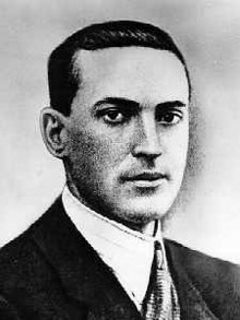

The dominant as a model of chronogenic change
the relevance of A. A. Ukhtomsky's and L. S. Vygotsky's traditions for systemic cognitive studies
pp. 125-149
in: Sven Hroar Klempe, Roger Smith (eds), Centrality of history for theory construction in psychology, Berlin, Springer, 2016Abstract
This paper analyses the role of A. A. Ukhtomsky's principle of the dominant in L. S. Vygotsky's psychological theory, as well as the relevance of their research traditions in the context of current cognitive research, particularly on the dual process models of mind and embodied cognition. It is proposed that the dominant principle – founded by A. A. Ukhtomsky, and elaborated by L. S. Vygotsky and colleagues, enables to analyze functional reorganizations of cognitive activity on the behavioral time-scale, thereby further specifying the chronogenic principle of systemic dynamic localization of higher psychological processes during ontogenesis. It's shown how the dominant serves as a model of historical (developmental) explanation bridging psychology and physiology, and has the potential to advance shifts in current research directions.


